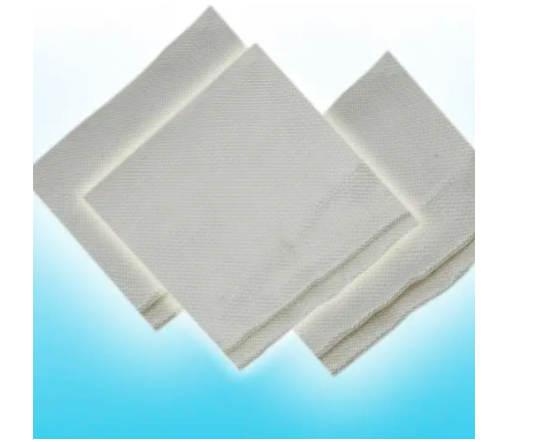- Understanding the Role of Geomembrane Liners in Waste Management
- Innovations in Geomembrane Liners for Water Management
- Geomembrane Liners: A Comprehensive Guide
- The Future of Geomembrane Liners in Civil Engineering
- Geomembrane Liners: Enhancing Landfill Stability
Manager:
WhatsApp:+86 177 0135 2670
Tel:+86 177 0135 2670
Email:marketing@okorder.com
Address:3rd Floor, No.2 Building, No.1 Sanlihe Road
Reinforcement Art: Woven and Non-Woven Geotextiles
In the intricate tango of civil engineering and environmental preservation, woven as well as non-woven Geotextiles engage in a duet of strength and flexibility. Made from synthetic materials such as polypropylene and polyester, these fabrics are not simply textiles – they are uncelebrated heroes of contemporary infrastructure. In this article, we shall navigate through the particulars of these geotextiles including their individual characteristics, applications & various distinctions.
Strength offered by Woven Geotextiles
Imagine a fabric made of threads that have been interwoven with great precision on a loom to create a strong tapestry. This is the woven geotextile designed for heavy duty applications. Its high tensile strength makes it an ideal material for road construction where it is used to provide reinforcement as well as stabilization. Woven geotextiles serve as foundation in infrastructure, keeping silent support beneath our feet.

Construction in focus
Woven geotextiles stand out as reliable workhorses when it comes to construction. They are much more than just tough; they have been engineered for longevity which offers long term solutions on projects that require resilience. Be it under driveways or residential streets or even highways, these geotextiles ensure that roads stay stable hence providing security.
Versatility of Non-Woven Geotextiles
Now think about a fabric that does not fall within the confines of weaving stiffness? This is what non-woven geotextile is like; fibers are bound together via needle punching or heat bonding methods. It can be said to embody all characteristics of chameleon thus an application for virtually all imaginable uses within the field.
Permeability and Flexibility
These types of textiles permit water to pass through them while restraining soil movement called permeability which makes them suitable for use in drainage systems among other landscaping activities where water management is important. Their flexibility also enables them to fit over irregular surfaces, and this is why they are suitable for erosion control as well as projects in which the terrain may not be very cooperative.
Geotextile Dichotomy
The world of geotextiles is a study in contrasts. Although both woven and Non-woven fabrics function for reinforcement and stabilization purposes, yet their best use and applications differ. This is a story of two textiles that have different features suited for various specificities.
A Tale of Two Textiles
Road construction tends to employ woven geotextiles due to the strength needed in order to handle heavy loads while non-woven types are employed by weight for protection, filtration, separation and drainage. Woven ones are not always good at transmitting fluids except under certain conditions, making them unsuitable for drainage or other applications needing high permeability but excellent when it comes to long term separation and reinforcement purposes.
Applications and Considerations
Your choice of geotextile will depend on what you need from your project as well as environmental elements unique to each situation. Each project has its own particularities just like the types of geotextiles serving it does.
Fit Right In
For projects requiring strong durable materials, woven geotextiles often make more sense. They guarantee long-lasting results so necessary in numerous infrastructure works. On the contrary, non-woven geotextiles are perfect for such landscaping tasks as drainage systems installation especially used in erosion control cases. The decision between a woven or non-woven version needs not only one’s preference but finding an exact match with regard to the demands posed by a given project.
Emotional Connection in Geotextiles
The more we know about geotextiles, the more you will learn to value them. They are not mere scientific inventions but rather they form the base of our physical world.
A World Fabric
Beyond being materials, geotextiles are quiet allies in our construction and conservation efforts. The ground we walk on is solidified by them, while incoming water moves through channels created by them and they also form a barrier which protects land with other useful properties. Our environment is shaped by these textiles’ interaction with the earth.
Geotextiles Tomorrow
The future of geotextiles only expands as we peer ahead. The uses and applications for woven and non-woven geotextile materials are limitless given advancements in manufacturing processes. They will continue to be an integral part of our infrastructure that adapts to meet the changing demands of society.
Into Future Weave
Tomorrow brings new challenges and opportunities for geotextiles. As we go further into construction and environmental preservation, these fabrics will change to suit our needs. The non-woven or woven ones would have carried the baton from those before them silently continuing to be a silent heroes of infrastructural development.
In summary, both woven as well as non-woven types of this kind of fabric play an important role in holding together humanity globally beyond countries borders. Each one has its own distinct qualities and uses that must be taken into account when considering appropriate material selection in any project undertaken. If not for anything else remember that it is in the strength of the woven and flexibility of the non-woven that actual art lies regarding reinforcement which defines our life on earth today as it did hundreds years ago too.
- Previous:THE UNSEEN CANVAS: The Changing Role of Geotextile Paper in Landscape Architecture
- Next:The Versatile World of Geotextile Landscape Fabric: A Gardener’s Most Dependable Friend






